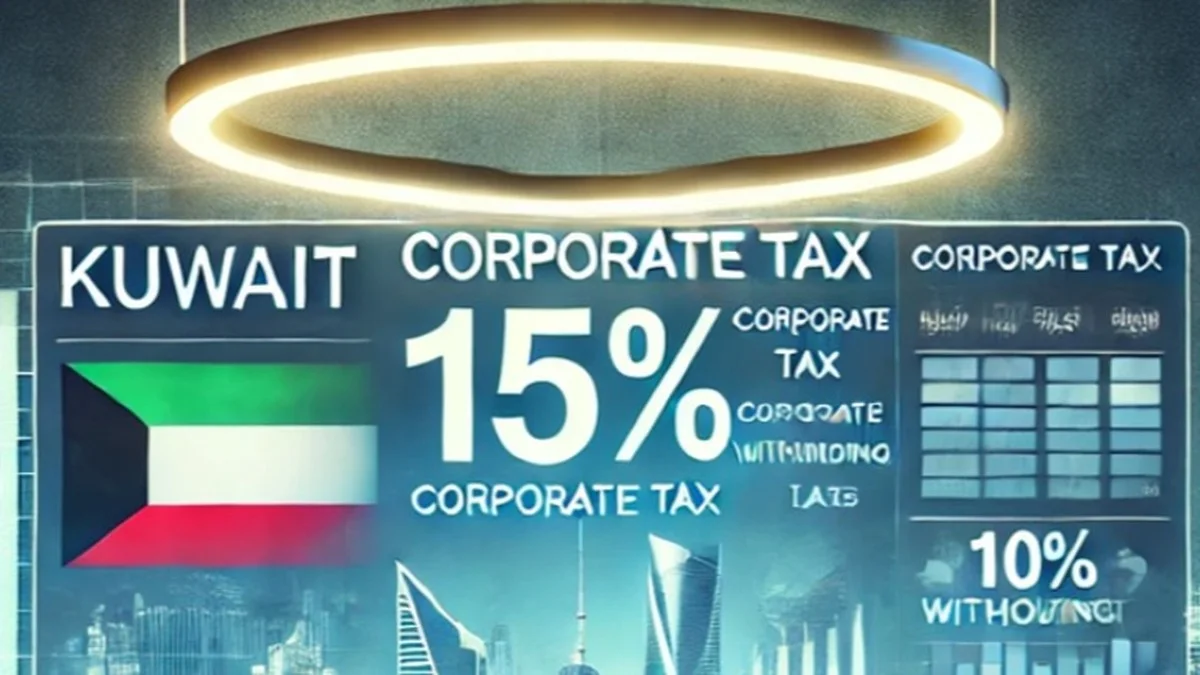12/01/2025
12/01/2025

KUWAIT CITY, Jan 12: The Ministry of Finance in Kuwait is determined to accelerate tax management as part of the country’s efforts to improve its business environment, adapt to global developments, overhaul the tax system, meet international standards, and reduce dependence on oil revenues.
Recently, the Kuwaiti Cabinet approved a draft law imposing a 15% tax on multinational enterprises (MNEs) operating in more than one country or jurisdiction. The law, which came into effect in January 2025, is aimed at diversifying Kuwait’s income sources, reducing reliance on oil, building a resilient economy, and addressing future challenges.
In 2023, Kuwait joined the OECD’s comprehensive framework and endorsed its two-pillar reforms. More than 137 countries, including all Gulf Cooperation Council (GCC) members, have supported this international tax reform.
Minister of Finance and Minister of State for Economic Affairs and Investments, Noura Al-Fassam, estimated that the law would generate about KD 250 million (approximately USD 800 million) annually in taxes. The law will affect around 300 groups, including 45 Kuwaiti and Gulf groups and 255 foreign enterprises operating in Kuwait.
Al-Fassam emphasized that the economic reforms under Kuwait Vision 2035 (New Kuwait) are backed by legislative measures to diversify non-oil revenues. The tax on MNEs is a significant step in this process. She explained that the reforms focus on sustainable non-oil resources to ensure financial stability, build a diversified economy, improve legislation, attract foreign investments, and create job opportunities for young people.
She noted that the new tax on MNEs is a first step toward aligning with international commitments, ensuring tax justice, and reducing global tax evasion.
Experts have highlighted the importance of this move in increasing the country’s revenues by preventing tax evasion and benefiting Kuwait’s public treasury. They also believe that the move will improve the business environment for MNEs and other companies operating in the country.
Dr. Sara Al-Sultan, a specialist in tax and financial law and a professor at Kuwait University’s Law College, commended the 15% tax on MNEs, calling it a positive step in the right direction. She noted that the legislation aligns with global trends aimed at closing loopholes in international tax laws that have been exploited by multinational corporations to avoid paying taxes and to reduce tax competition among countries.
Al-Sultan explained that in 2021, over 135 countries agreed on new international tax rules, including a minimum tax rate of 15% on multinational corporate income, regardless of where it was reported. This initiative, under the OECD and G20, aims to combat base erosion and profit shifting (BEPS), where companies shift profits to low-tax jurisdictions to avoid paying taxes.
Since 2024, many countries have begun incorporating these international tax rules into their national laws, and Kuwait’s new tax law follows suit, aiming to close gaps in the international tax system without hindering foreign direct investment. However, she emphasized the need for tax incentives to further attract foreign investments to the country.
Economist Mohammad Ramadhan explained that the OECD is working to address disparities among multinational companies by urging countries to impose a minimum tax rate of 15%. He noted that this step was necessary as some companies have been operating in countries with no taxes, and the creation of an international leverage group aims to push countries to impose taxes on these enterprises.
Ramadhan added that Kuwait had no choice but to implement the 15% tax on MNEs, but clarified that the tax is not designed to generate financial gains or burden companies.
Ahmad Al-Fares, former chairman of the Kuwait Accountants and Auditors Association (KAAA), argued that the new tax law would benefit Kuwait, especially as Kuwaiti banks operate both domestically and abroad, with taxes on them directed elsewhere. He suggested that the new law would be beneficial if taxes were directed back to Kuwait.
Al-Fares also recommended that organizations such as the Kuwait Banking Association and the Union of Investment Companies should provide input on the tax application mechanism. He noted that the Ministry of Finance would face the biggest challenge in implementing the tax, as shifting the tax system would require significant investment in information technology infrastructure. Furthermore, Al-Fares called for the creation of an independent tax agency, especially considering the global developments, as Kuwait is one of the few countries without such an entity.
Al-Fares concluded that the new law would help maintain Kuwait’s tax revenues, align the country’s tax system with international standards, and promote fair tax practices.
A recent report by AlShall Consulting praised the issuance of the new tax law, calling it a positive step and the beginning of tax system reforms in Kuwait. The report emphasized that taxes are a crucial tool in fiscal policy and that the contribution of taxes to Kuwait’s public budget remains among the lowest globally. It noted that taxes are not just a source of revenue for the public treasury but a key instrument for financial management.


